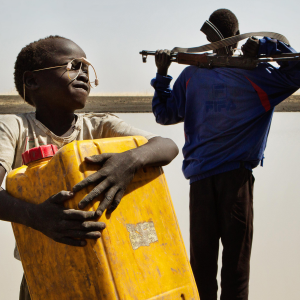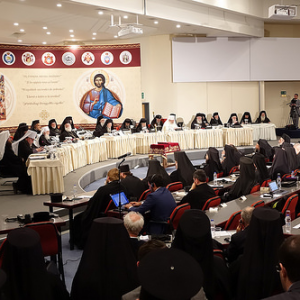The long-awaited Holy and Great Council of Eastern Orthodoxy, the first in over 1,200 years, began a week of deliberations in Crete on Monday with many participants saying such meetings should become a regular institution in future.
Ecumenical Patriarch Bartholomew, who is the spiritual head of the world’s 250-300 million Orthodox but has no administrative authority over them, told the other nine Orthodox primates present that last-minute repeat invitations had been sent over the weekend to the four churches boycotting the session.
Two churches answered and two didn’t, Archbishop Job Getcha, the Ecumenical Patriarchate’s representative to the World Council of Churches, told a briefing at the conference site in the Orthodox Academy outside the western Crete fishing town of Kolymvari.
He did not say which of the four absentee churches — Russia, Bulgaria, Georgia and Antioch — had answered. Those churches withdrew in disagreement with Council procedures in the days before the historic summit was due to start.
Archbishop Job said the primates attending the session “expressed their joy that … we finally got it in order to discuss the issues that we are concerned with … Many of them expressed their hope that this council … will become a new institution that will gather on a regular basis”.
He said the Orthodox have had councils in the past without all churches in attendance, noting that Antioch had not attended the Council of Ephesus in 431 — the ecumenical council that confirmed the Nicene Creed — but later accepted its conclusions.
“We hope this Holy and Great Council will initiate a new process in the Orthodox Church. We need it on an internal level and on a worldwide level,” he said.
Organised along national and territorial lines, the 14 autocephalous Orthodox churches have no formal mechanism for consulting as a global church. Critics say they have drifted apart over the centuries and cannot speak with one voice, which is a growing disadvantage at a time of instant global communications that Pope Francis is using quite effectively to raise the Catholic Church’s profile in the world.
The issue of further meetings at primate level is not among the six documents up for approval at the Council, all of which were kept general enough to ensure consensus support. But even an absentee churches such as Russia has stressed it would like consultations to continue.
The deeper problem is whether the unity the Orthodox seek — the Council’s motto is “He called all to unity” — requires unanimity among all member churches. The Russians and Antioch, at least, say it does and no meeting can go ahead if this does not exist. The Ecumenical Patriarchate says unity can emerge from meetings, so getting together is more important.
Council spokesman Fr John Chryssavgis echoed this in a statement at the start of the Council that, while comparing the meeting to the gathering of the Apostles at Pentecost, seemed to address the problems this Council faces. Pentecost fell on Sunday according to the Orthodox calendar.
“Then, like now, there were conflicts and even rumours of wars,” he said. “Then, like now, there was division among them as well as uncertainty. Then, like now, there were many unanswered questions . Who would lead them, and by what authority? Who among them was first, and who was second?”
But Pentecost was when the Holy Spirit intervened and the Church was born, he said. “More than receiving an answer, they became the answer,” he said. “They became the very unity that they sought.”
Under repeated questioning from Greek journalists, Archbishop Job said the this meeting had officially been named the Holy and Great Council of the Orthodox Church and its name could not be changed by the last-minute absences of four churches.
“Pan-Orthodox Council” was not its official name, he insisted when journalists asked if it could still be called that in view of the boycotts.
He retreated a bit from earlier official statements that all 14 churches had approved plans for the Council back in January, saying only that all had attended the meeting of primates in Geneva that backed it. Antioch refused to sign that document.
He also said that the Ukrainian parliament’s appeal to Ecumenical Patriarch Bartholomew to help create a united Ukrainian Orthodox church out of the three competing churches there “is not on the agenda” of the Council.
The Council is due to close late on Saturday afternoon (25 June).




 Loading ...
Loading ...